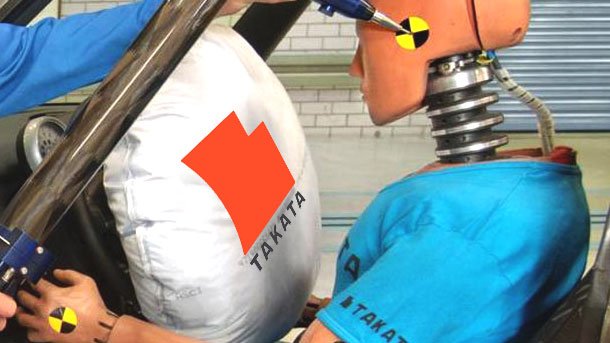Emails Show Takata Employees Joked About Manipulating Test Data

The most incriminating of The New York Times' emails, allegedly from engineer Bob Schubert, joked, "Happy Manipulating!!!" He also wrote that he was "repeatedly exposed to the Japanese practice of altering data presented to the customer." In another message, this engineer said that changing the data had "gone beyond all reasonable bounds and now most likely constitutes fraud."
Takata argued that The Times took the emails out of context. "Mr. Schubert is referring to the formatting of a presentation, not to changing data, and the emails in question are completely unrelated to the current airbag inflator recalls," a portion of the company's statement said.
While these emails are some of the most flagrant examples, they are hardly the first allegations of Takata employees tampering with airbag testing data. A Wall Street Journal investigation in 2015 turned up concerns of altered statistics from workers for at least a decade. Staff in Japan reportedly took validation info from the US and changed it to fit the company's needs. Some of these faulty statistics allegedly went to Honda, which later dropped Takata as an airbag inflator supplier.
The US government concluded that Takata was misleading when working with federal investigators, and in response to the company's exploding inflators, the Department of Transportation hit the business with a $70-million fine that could grow to $200 million. Toyota, Mazda, and Ford also followed Honda's lead by deciding not to use the supplier's inflators with ammonium nitrate propellant in the future.
Even after a recall for over 19 million vehicles in the US, Takata's inflators continue to pose a danger. Just weeks ago, the National Highway Traffic Safety Administration confirmed the ninth death globally connected to the parts when a 13-year-old boy died driving a 2001 Honda Accord coupe.
Related News


